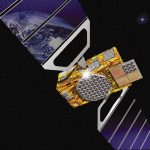Oh no! Not another learning experience!
Bumper sticker wisdom after the fact, but better late than never.
As this issue of Inside GNSS heads off to the printer, the regulatory phase of the GPS/LightSquared controversy appears to be winding down, and the litigation phase warming up.
Oh no! Not another learning experience!
Bumper sticker wisdom after the fact, but better late than never.
As this issue of Inside GNSS heads off to the printer, the regulatory phase of the GPS/LightSquared controversy appears to be winding down, and the litigation phase warming up.
Responses to comments on the Federal Communications Commission’s move to pull the plug on the terrestrial wireless broadband network were due March 30. LightSquared’s March 16 filing denounced the agency, the GPS industry and, by implication, the U.S. Department of Defense for thwarting the company’s effort to set up shop next door to the GPS L1 band.
It was either the final curtain in a prolonged drama or the opening scene of a messy second act.
In the words of Billy Crystal’s wizened character in The Princess Bride, this proposal is “mostly dead,” which means it’s still a little bit alive. The LightSquared specter could yet return to haunt us.
In any case, as Dee Ann Divis explains in her Washington View column, fallout from the confrontation over scarce spectrum appears certain to shape GPS prospects significantly in the future.
So, during this however brief interlude, what are the take-aways from a most difficult exercise?
Well, some lessons aren’t new, they just have to be learned all over again.
For instance:
“Money talks,” and its Supreme Court variant, “Money is free speech.” No surprise here. LightSquared claims to have spent $4 billion trying to make its system a reality. A good portion of that may not be lost, but the millions spent on PR hired gun Burson-Marsteller and lobbyists certainly are. (And, when it came to saving their own bacon, GPS companies were no pikers, either.)
Do due diligence. Come on, Harbinger Capital, you’re a hedge fund. Assessing risk is your business, even if it does involve physics. There’s a lesson here for FCC staff, too.
Government has a revolving door problem. Interchangeable roles as federal officials, industry leaders, and lobbyists had many tripping over their ethics as they danced the LightSquared fantastic.
Don’t try to push a big change through the back door. A de facto reallocation of mobile satellite service spectrum to a high-power, all-terrestrial wireless network should not have been decided completely inside the FCC’s International Bureau. That magnitude of qualitative change should have come to the full commission early on.
It’s good to have the DoD on your side. Over the years, the dual-use GPS program has taken some lumps for being operated by the U.S. Air Force. But whether its an air war or an airwaves war, having defense equities deeply enmeshed in a situation makes for a powerful ally — or opponent.
GPS is an industry, as is, more broadly, GNSS. The LightSquared affair identified an intricate network of scientists and researchers, academics, product designers, systems integrators, manufacturers, hardware and software tool providers, government officials, commercial service companies, user equipment vendors, critical infrastructure, and advanced applications — all linked by a distinct technology that is critical not merely for their prosperity, but their survival.
However engaged these players may be in other markets and technologies, this network represents an industry in itself that must also be for itself, and needs to behave accordingly.
The next phase of regulatory and commercial debate will pit spectrum protection against receiver standards. The battle over LightSquared interference is just the beginning. GPS advocates inside government, industry, and the user community would like to see the emphasis placed on preserving a nearly 40-year-old allocation of RF spectrum environment. The FCC, the administration, and the wireless community would prefer that the focus be on GNSS receiver standards.
How that plays out will have enormous consequences for all involved.





